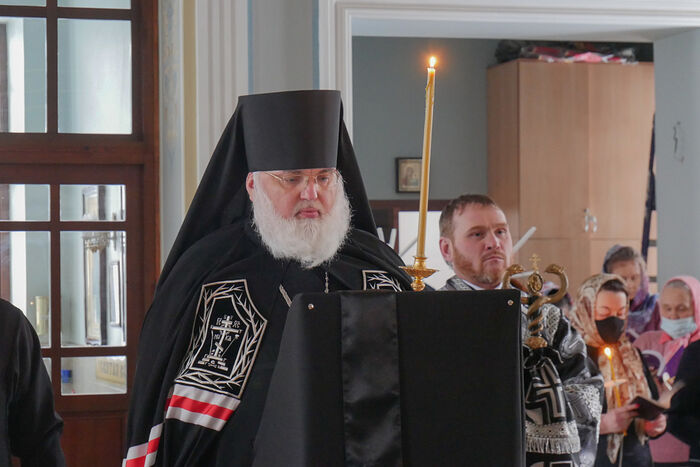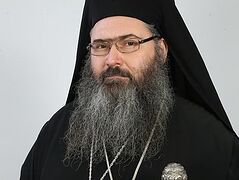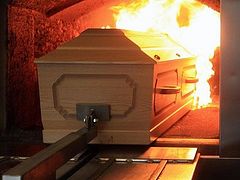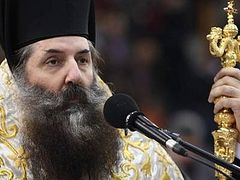Sarapul, Russia, March 16, 2021
On March 5, His Grace Bishop Anthony of Sarapul and Mozhga addressed an open letter to the head of the Russian Udmurt Republic about his plans to build a crematorium in the city of Sarapul.
On the site of the Sarapul Diocese where the letter is published, it bears the subtitle, “How will the residents feel knowing that the bodies of people are burned in their neighborhood?” His Grace draws upon Orthodox teaching and the dark history of cremation in Russia to call upon the Republic head to reconsider.
Addressing Alexander Brechalov, Bp. Anthony begins: “I was surprised to learn from the media about your decision to build a crematorium in Sarapul. Unfortunately, such a sensitive issue, affecting the moral, ethical and religious feelings of citizens, was adopted without discussion with the residents.”
The Holy Synod of the Russian Church recognizes the burial of Christians in the ground as the norm, His Grace writes, noting that “From time immemorial, the dead in Russia have been buried in the ground.” And this is true not only for Orthodox Christians, but also for Jews, Muslims, and even atheists, he adds.
Historically, cremation began in Russia after the 1917 revolution, when the new government began to fight against God and Russia’s age-old traditions. Moreover, crematoria were often built on the site of desecrated churches, “Therefore, today, for the faithful of Sarapul, the decision to build such a structure is a new reminder of theomachy,” Bp. Anthony informs the head of the Republic.
The very word “crematorium” is associated with war, fascism, and concentration camps, especially for the older Russian generations, His Grace continues, and the very presence of crematoria is morally disturbing. “How will the residents feel, knowing that the bodies of people are being burned in the neighborhood?” the hierarch asks.
There are also environmental issues. In Nizhny Novgorod, people who live near a crematorium complain of the constant smell of burnt hair, Bp. Anthony notes.
And while a new crematorium will create a few jobs, the moral, ethical, and religious negatives far outweigh any benefits, the Bishop affirms. And in these trying times, the people need decisions that will unite rather than divide them.
Previous generations in Sarapul left a beautiful city with a rich history, but “what great deeds will our descendants remember us for? Will the crematorium become a monument of our times?” His Grace concludes.
In June 2018, OrthoChristian reported on a Bulgarian hierarch taking a stand against a crematorium being built in his city. Several Greek hierarchs similarly spoke out in 2016, and Archbishop Chrysostomos of Cyprus reminded that the Church does not serve funerals for those who have been or intend to be cremated.
Follow us on Facebook, Twitter, Vkontakte, Telegram, WhatsApp, Parler, MeWe, and Gab!




